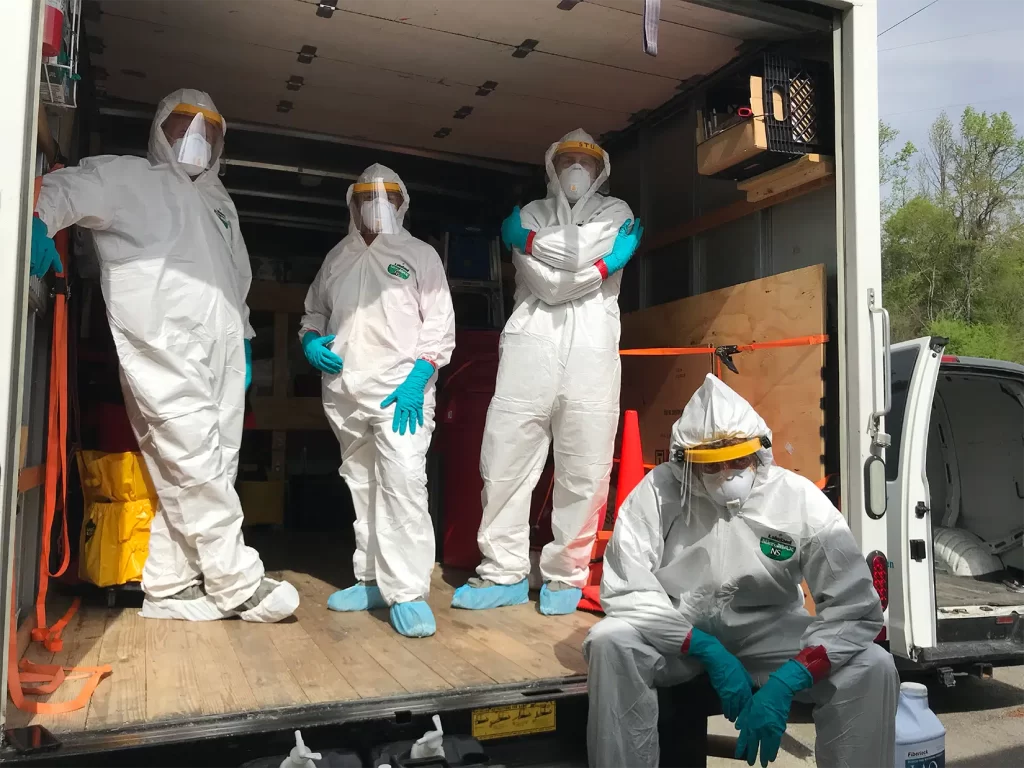In the aftermath of a violent crime, the visible scars may begin to heal, but the unseen remnants linger in the form of bloodstains, bodily fluids, and other traumatic reminders. This is where the unsung heroes known as crime scene cleaners step in, bravely navigating the shadowy aftermath of tragedy to restore spaces to a semblance of normalcy. Crime scene cleaners are the silent custodians of the darkest corners of human existence. Unlike traditional janitors, these professionals are tasked with removing biohazards and sanitizing crime scenes, a responsibility that goes beyond the typical realm of cleaning. The unseen world they inhabit is one of blood, grief, and psychological trauma. As they enter crime scenes, cleaners are confronted with the unthinkable scenes that defy the imagination and challenge the limits of emotional endurance. From homicides and suicides to accidents and unattended deaths, these individuals work diligently to erase the physical traces of violence, allowing families and communities to move forward.

The cleaning process is meticulous and demanding. Crime scene cleaners must wear personal protective equipment PPE to shield themselves from potential health hazards. They employ specialized cleaning agents and techniques designed to decontaminate affected areas thoroughly. The goal is not only to remove visible stains but also to eradicate biological hazards that may pose a risk. Beyond the technical aspects of their job, crime scene cleaners must also possess a unique set of interpersonal skills. They often find themselves interacting with grieving families, understanding the delicate balance between professionalism and compassion. In a profession where empathy is as crucial as expertise, these cleaners provide a human touch amidst the clinical task at hand. The emotional toll on crime scene cleaners is profound. Witnessing the aftermath of violence on a daily basis can lead to vicarious trauma, depression, and mental health challenges and go here. Coping mechanisms become essential for these individuals, who must find ways to compartmentalize their emotions while offering support to those in need.
The unseen world of crime scene cleaners extends beyond the physical spaces they clean it encompasses the mental and emotional landscapes they navigate daily. The resilience required to face the aftermath of tragedy, coupled with the ability to maintain composure, sets these individuals apart. Their work is not just about cleaning crime scenes it is about restoring a sense of order and safety to spaces tainted by violence. Yet, despite the vital role they play in society, crime scene cleaners often operate in the shadows, their contributions obscured by the grim nature of their work. It is crucial to recognize and appreciate the sacrifices they make to help communities heal. In wiping away the unthinkable, crime scene cleaners emerge as silent guardians of the collective well-being. Their unseen world is one of sacrifice, compassion, and unwavering dedication to restoring normalcy in the face of the unimaginable. As we confront the darker aspects of human existence, let us not forget those who, with quiet strength, wipe away the remnants of the unthinkable, allowing us to move forward towards healing and hope.